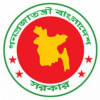Can a defaulter prevail over the government?

Believe it or not, Padma Bank (formerly Farmers Bank) appears to be on course to prove itself more powerful than one whole government machinery. The bank has, since 2016, held hostage the Bangladesh Climate Change Trust Fund (BCCTF), whose board of trustees consists of as many as 10 ministers/state ministers, plus the cabinet secretary, governor of the Bangladesh Bank, and senior officials like the secretary of the finance division. By all indications, the high-power BCCTF board, management, as well as the Fund's parent and overseeing authority, the Ministry of Environment, Forest and Climate Change, are clueless as to if and how the BCCTF could be salvaged from the clasps of a bank that has been steeped in scandals since its inception.
Between November and December 2015, the then Farmers Bank collected multiple one-year fixed deposits amounting to Tk 508.13 crore from the BCCTF at nine percent interest. From when the deposits matured till date, the bank has been evading the refund of BCCTF's due amount which, as per latest available information, is about Tk 827 crore inclusive of interest. Having so far paid only Tk 74 crore, in December 2022, the bank managed to persuade the Fund's parent ministry to offer it an extension of eight more years to pay back the money, that too at six percent interest instead of the nine percent at which the deposits were taken. Judging by the way the bank has been exercising its defaulter-cum-political leverage to violate all norms of banking with impunity in this case and beyond, one has to be extraordinarily optimistic to expect that even this refund timeline will be maintained by the bank.
In Bangladesh, the amount of defaulted loans has increased more than three times in the last 10 years. According to Bangladesh Bank data, till March 2023, the amount has risen to Tk 1,31,620 crore. By comparison, the Tk 827 crore default with BCCTF is in fact a drop in the ocean. And while it is anyone's guess as to what portion of defaulted loans in the country will ever be recovered, questions may be raised as to why the BCCTF's case is special.
The claim that this bank offered the highest interest rate is summarily untenable because there is no evidence as to whether alternative offers were solicited from other private and state-owned banks. More importantly, was the credibility of the bank verified, as per indicators such as credit ratings, in order to assess the potential risks involved against the promised interest rate?
When the BCCTF was set up, it was commended nationally and internationally as a good example set by one of the world's most climate-vulnerable countries in terms of investing its own resources to the best of its capacity, especially as developed polluting countries have been failing to deliver on their pledge to provide funding to confront the devastating effects of climate change. It was viewed as a replicable example of Bangladesh's commitment at home, commensurate with the very active international role it has always played in global climate strategies and negotiations.
The Fund's objective is to support relatively small projects of up to Tk 25 crore and for up to three years in six thematic areas of the Bangladesh Climate Change Strategy and Action Plan 2009. To be fair, there have been reports of lack of capacity, inefficiency, and a deficit of oversight, resulting in misuse of the BCCTF, not to mention allegations of politically biased project selection and collusive corruption. Nevertheless, at least 850 projects have been implemented or are being implemented thanks to the BCCTF, many designed to directly address challenges faced by communities already affected by climate change.
The BCCTF has also been going through a funding crisis of its own because of shrinking budgetary allocations from the government. For its first three years, it received allocations of Tk 700 crore annually, which then started to systematically decline, dropping to Tk 100 crore by 2022-23. No credible explanation is available as to why such a critically important fund, designed to serve public interest and steered by a high-powered board, failed to retain its original level of annual allocation, while the budget for nearly every other item has risen during the same period. This too when hardly any alternative national or international funding exists to support the type of projects the BCCTF was created for.
According to the environment minister, as stated in parliament, in the 14 years since being set up, the fund has so far received Tk 3,919.34 crore and the amount currently at its disposal is Tk 1,435.90 crore. In other words, 57.59 percent of the total amount the Fund currently has in its books is at risk of being lost to the defaulting Padma Bank.
Failure of the BCCTF authority, including its board (which, as stated earlier, involves at least 10 ministries, the Bangladesh Bank, and the Finance Division), to prevent this hostage situation begs this question: has serving the designs of a scam-ridden private bank been of higher priority than protecting a public institution mandated to serve the interests of critically climate-vulnerable communities?
No less important is the question of why, on a matter that drew concerns even in the parliament, no investigation has taken place to explore on which grounds and for whose benefit the lion's share of the climate fund was deposited in the Farmers Bank, which was already known for its loan scandals and lack of credibility. The claim that this bank offered the highest interest rate is summarily untenable because there is no evidence as to whether alternative offers were solicited from other private and state-owned banks. More importantly, was the credibility of the bank verified, as per indicators such as credit ratings, in order to assess the potential risks involved against the promised interest rate? It is also unbelievable that the BCCTF authorities totally ignored a well-publicised Bangladesh Bank special inspection report in 2015, which had identified gross violations of banking rules in disbursing loans by the Farmers Bank management with the participation of the then directors of the bank.
Whether or not the BCCTF miraculously succeeds in getting back its due amount from Padma Bank, it is never too late for its management and board to learn the right lessons for the future. This would require political will to undertake an independent investigation into the fault lines that led to the decision to invest in the controversial bank. However, to manage potential conflict of interest, an independent judicial investigation would be the only credible way to go.
Dr Iftekharuzzaman is executive director of Transparency International Bangladesh (TIB).
Views expressed in this article are the author's own.
Follow The Daily Star Opinion on Facebook for the latest opinions, commentaries and analyses by experts and professionals. To contribute your article or letter to The Daily Star Opinion, see our guidelines for submission.

 For all latest news, follow The Daily Star's Google News channel.
For all latest news, follow The Daily Star's Google News channel. 











Comments